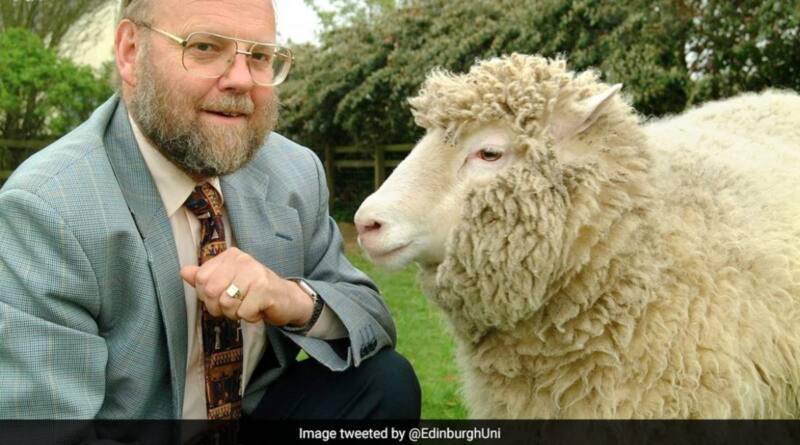The Pioneering Scientist Who Cloned Sheep Dies. Know What Happened
Peter Mathieson, vice chancellor of Edinburgh University, called Wilmut “a titan of science,” whose research on Dolly’s cloning “transformed scientific thinking at the time.”
Ian Wilmut, who disclosed in 2018 that he had received a Parkinson’s disease diagnosis, led the team that cloned Dolly in 1996. The group was based at the University of Edinburgh’s Roslin Institute in Scotland.
Dolly was the first mammal to be cloned from an adult cell, and the scientific achievement generated widespread media attention and spurred advancements in both medical and animal research.
The vice chancellor of Edinburgh University, Peter Mathieson, praised Wilmut as “a titan of science” whose work on Dolly’s cloning “transformed scientific thinking at the time.”
He made the following comment in a press release: “This discovery continues to feed many of the breakthroughs in the field of regenerative medicine that we experience today. It was “sad news,” according to Bruce Whitelaw, the current director of the Roslin Institute.
“Science has lost a household name,” he continued. In 2012, Wilmut stepped down from Edinburgh University.
But in 2018, he revealed his support for new Parkinson’s research and disclosed that he had been diagnosed with the progressive, incurable brain illness, which can result in uncontrollable movements like shaking.
“There was a sense of clarity; well, at least now we know and we can start doing things about it,” Wilmut said at the time, according to the BBC.
The disappointment that it might somewhat shorten my life and, more importantly, that it will change the quality of my life is also unavoidable.
According to the World Health Organisation (WHO), Parkinson’s affects more than 8.5 million people globally and is the second most prevalent neurological illness after Alzheimer’s.
How Ian Wilmut and his team cloned a sheep
According to the BBC, the scientists used a cell from a deceased adult sheep’s mammary gland to generate a new living creature. They gave the cell electrical stimulation and chemical additions, which converted the adult DNA into an embryo. After that, they placed this into an empty egg before implanting it into a surrogate sheep.
Dolly’s conception more than 30 years ago was a major scientific breakthrough, but it also generated discussion about the ethics of this study. A year after Dolly was born, then-US President Bill Clinton issued an executive order prohibiting human cloning experiments while refraining from outright outlawing the practice altogether. A short while later, Dolly’s life ended. The sheep was put to death by researchers after developing an uncurable lung tumor about six years after birth.
Wilmut concentrated his efforts on harnessing cloning technology to create stem cells that could be employed in regenerative medicine after the enormous success of the Dolly experiment. His work was essential to the study of the healing of damaged tissue by the human body in hereditary and degenerative disorders.
Despite the fact that his research did raise ethical concerns regarding cloning technology, many of those concerns haven’t come to pass. Scientists hail Wilmut as a hero, and his work paved the way for innovative medical innovations that may one day save lives.




